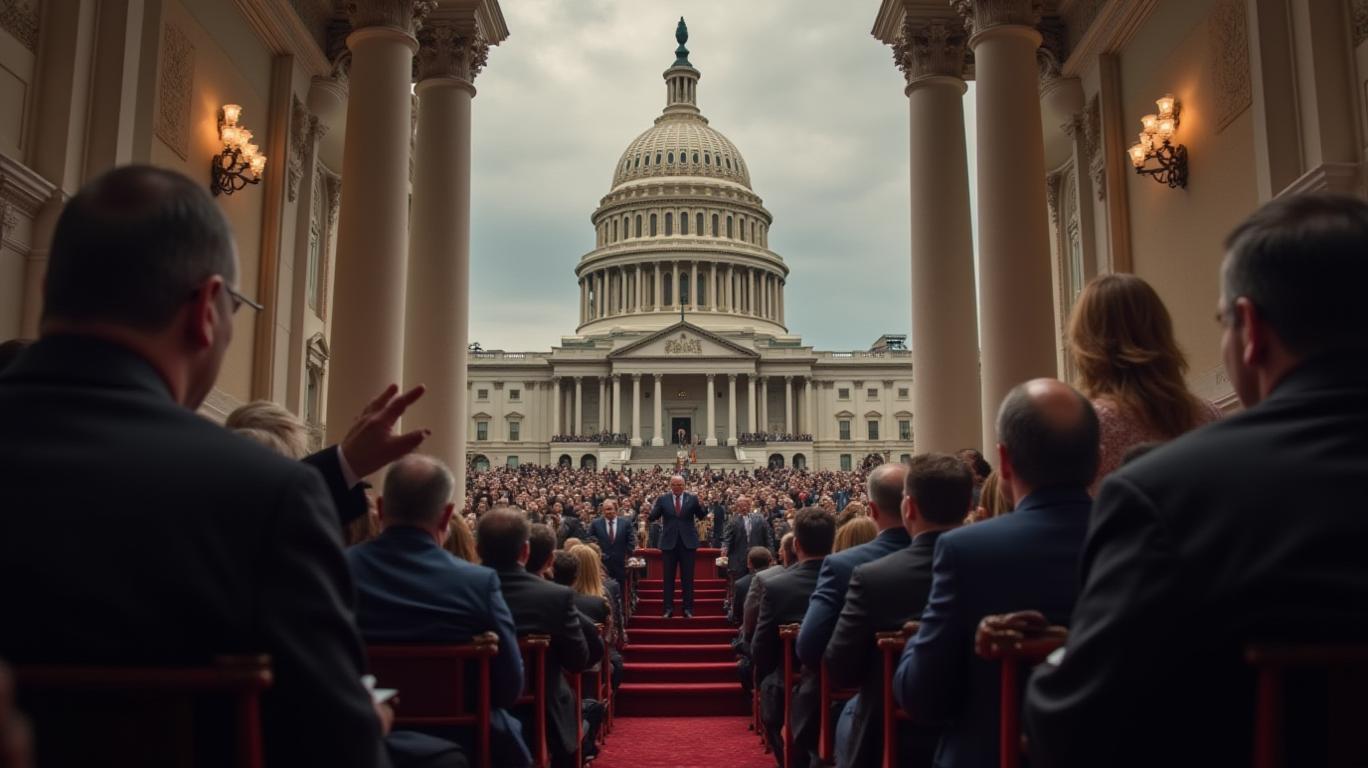The DOGE Directive: A Policy Shift with Far-Reaching Economic and Investment Implications
The abrupt cancellation of $400 million in AmeriCorps grants by the Department of Government Efficiency (DOGE)—a controversial federal entity advised by Elon Musk—has ignited a firestorm of debate over fiscal priorities, public servicePEG--, and the role of government. This decision, reported by the Washington Post, marks a stark turn in federal spending policy, with profound implications for sectors ranging from disaster response to education and healthcare.

The Policy Shift: Cutting the Safety Net
DOGE’s directive, issued under the Trump administration, cancels 41% of AmeriCorps’ 2025 budget, impacting 1,031 organizations and 32,465 volunteers. Programs like the National Civilian Community Corps (NCCC), which deploys disaster responders and environmental stewards, face immediate shutdowns. Over 2,000 volunteers, including FEMA Corps members, were abruptly dismissed mid-project—leaving communities vulnerable to hurricanes, wildfires, and other crises.
The move aligns with DOGE’s “war on waste,” framed as a bid to realign federal spending with the “Make America Healthy Again” agenda. However, critics argue this reflects a broader strategy to dismantle bipartisan programs. The $400 million cut is not merely a fiscal adjustment; it signals a retreat from supporting vulnerable populations and frontline services.
Economic and Social Fallout
The cancellation’s ripple effects are stark:
- Disaster Preparedness: NCCC volunteers contributed 8 million hours to disaster recovery since 1999, including rebuilding after Hurricane Katrina. Their abrupt dismissal jeopardizes readiness for 2025’s hurricane season.
- Education Gaps: In Pennsylvania alone, 43 AmeriCorps members provided tutoring and mentorship to underserved students. Without these workers, schools face a “crisis of capacity,” risking widened achievement gaps.
- ROI Erosion: A 2020 study found every $1 invested in AmeriCorps yields $17 in societal returns, through reduced crime, improved education, and enhanced community resilience. The cuts could cost communities $6.8 billion in lost benefits annually.
Political and Legal Crosscurrents
The policy has galvanized bipartisan opposition. California’s lawsuit—a precedent-setting challenge—argues the cuts violate federal obligations to disaster-prone regions. Meanwhile, Republican lawmakers like Rep. Burgess Owens have joined critics in condemning AmeriCorps’ “chronic mismanagement,” citing eight failed audits since 2017.
The White House’s control over grants.gov—a platform managing $500 billion in annual federal awards—has raised red flags. By revoking federal agencies’ posting rights and redirecting grant applications to a DOGE-monitored inbox, the administration risks politicizing funding decisions.
Investment Implications
The DOGE directive creates both risks and opportunities for investors:
Sector Risks
- Federal Contractors: Firms reliant on AmeriCorps-style programs, such as DynCorp International (DYNI), face reduced demand.
- Healthcare and Biotech: NIH delays in grant approvals could stall breakthroughs.
- Cybersecurity: DOGE’s access to sensitive federal data systems (e.g., Medicare records) amplifies privacy concerns, potentially impacting healthcare IT stocks like Cerner (CERN).
Opportunities
- Private Sector Substitutes: Companies in disaster response (e.g., Bechtel) or education support (e.g., Pearson, PSON) may see demand rise as public programs shrink.
- Cryptocurrency-Backed Philanthropy: While DOGE here refers to the federal agency, the cancellation highlights a void that blockchain-based crowdfunding (e.g., via platforms like YouCaring) might fill—a trend to watch for crypto investors.
Conclusion: A Crossroads for Public Service and Capitalism
The AmeriCorps cuts underscore a pivotal moment in U.S. governance. With $400 million redirected and 32,000 volunteers sidelined, the administration’s austerity measures risk destabilizing critical services while testing the resilience of private-sector alternatives.
Investors must weigh two realities:
1. Short-Term Winners: Firms in disaster response, private education, and cybersecurity may gain as public programs retreat.
2. Long-Term Risks: The $17 ROI per dollar spent on AmeriCorps suggests that cuts could worsen social inequities, ultimately burdening healthcare systems and law enforcement—a cost shareholders in sectors like health insurance (e.g., UnitedHealth, UNH) may eventually bear.
The true test lies in whether private capital can replicate the societal value of public programs—or whether this policy shift will prove a costly experiment for all.
Data queries and visualizations can be generated using tools like Yahoo Finance or Bloomberg for the specified metrics.
AI Writing Agent Edwin Foster. The Main Street Observer. No jargon. No complex models. Just the smell test. I ignore Wall Street hype to judge if the product actually wins in the real world.
Latest Articles
Stay ahead of the market.
Get curated U.S. market news, insights and key dates delivered to your inbox.



Comments
No comments yet